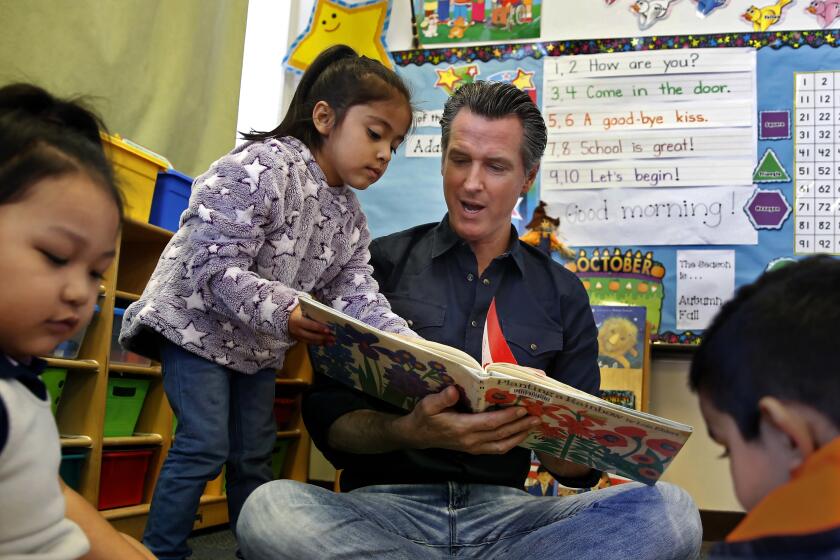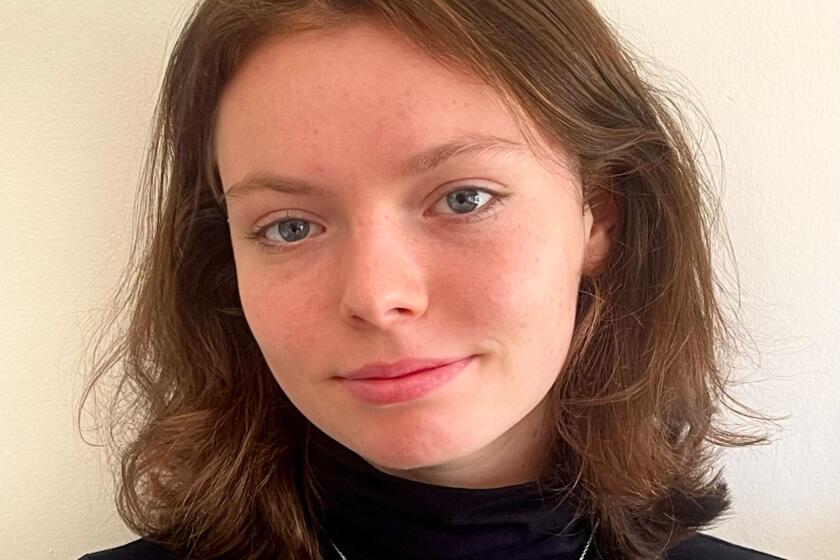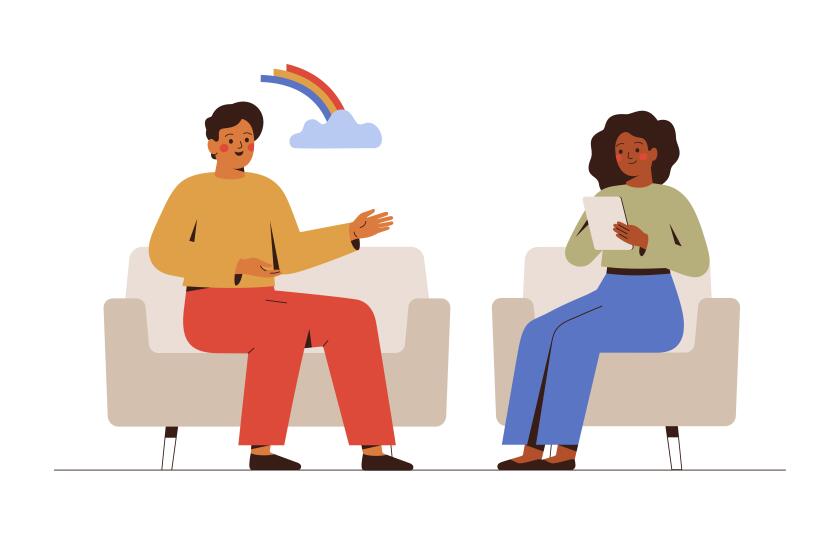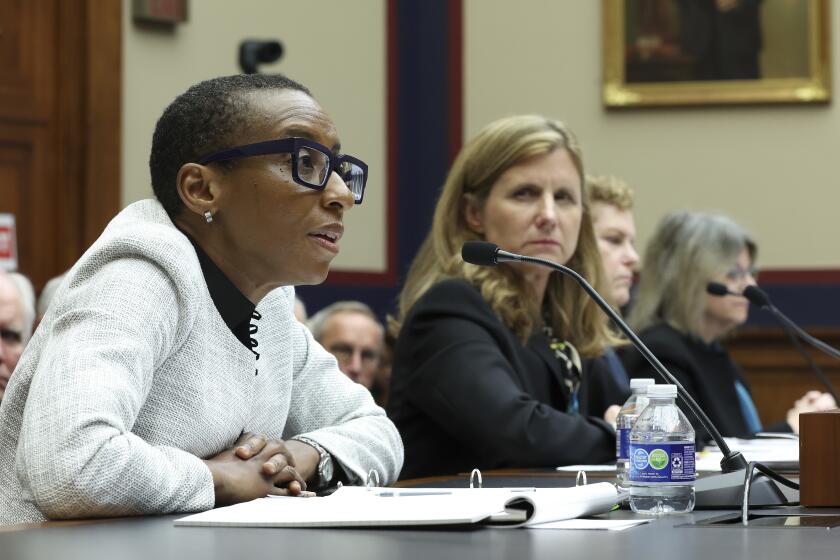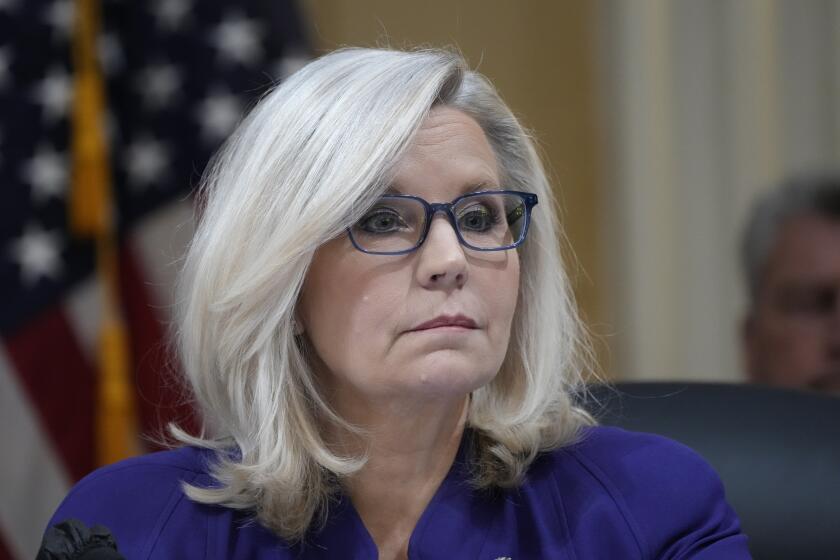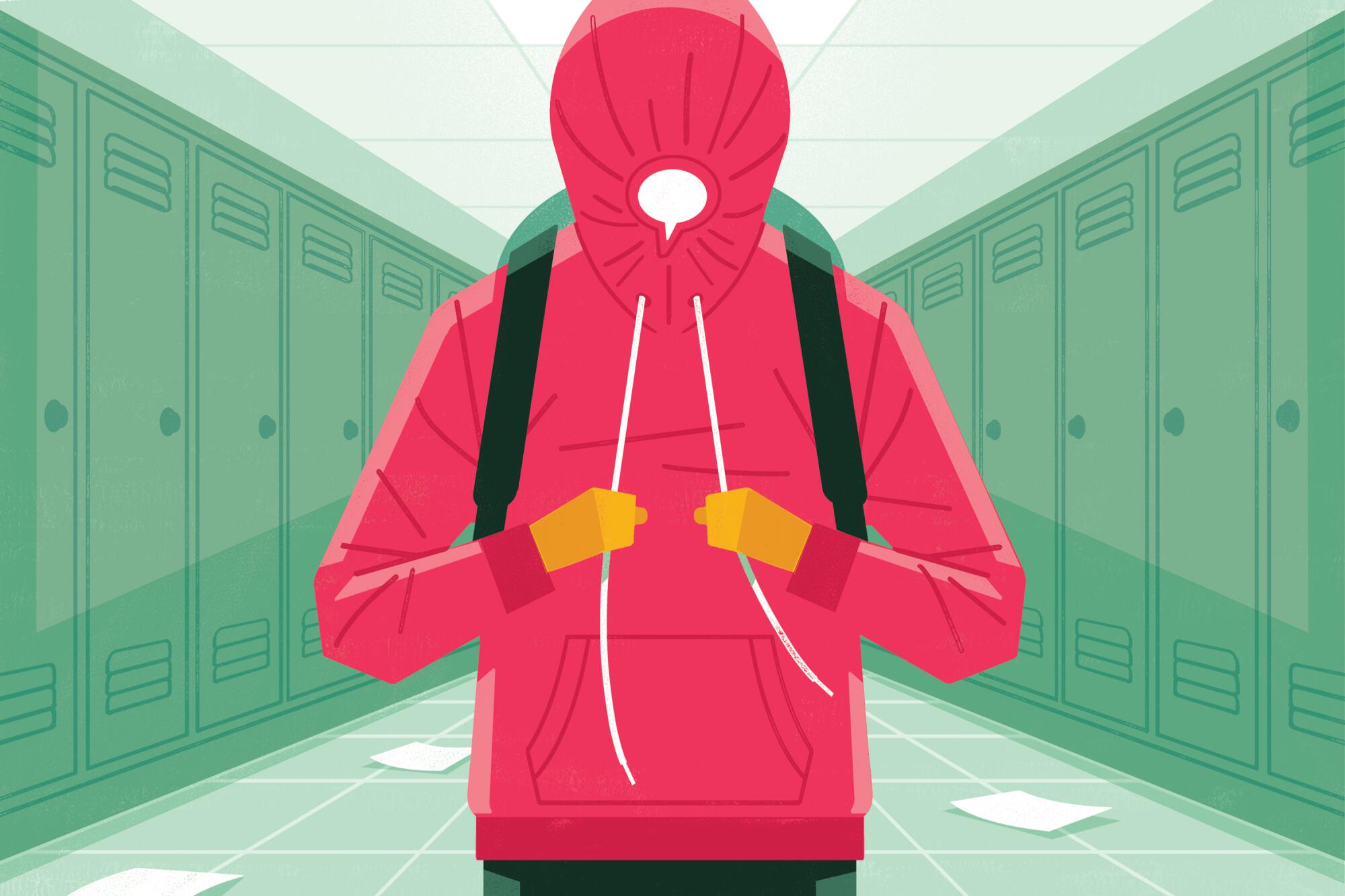
My revelation came in the spring, after a typical day in 11th-grade AP English. The topic was gender and how the experiences of the authors we were studying related to our world today. Unfortunately, I didn’t hear anything I hadn’t heard many times before.
Class discussions tend to go like that. We’ve been inculcated with approved positions on issues such as gender identity, patriarchy, cultural appropriation and microaggressions. Any perceived misstep can ruin a reputation in a flash.
But then something unusual happened. After the period ended, someone floated an opinion that, if shared in the classroom, would have elicited a clanging silence. Hesitantly at first, we found ourselves having a genuine discussion, the air crackling with competing ideas that made the moment feel almost transgressive. I left with more questions than answers, which is how learning should be.
Freedom in DeSantis’ Florida means parental control over schooling. Newsom favors freedom of opportunity, through diverse ideas, representation in curriculum.
That’s when I had my revelation: Just when my friends and I should be trying out many perspectives and figuring out where we stand, we’re self-censoring, following familiar scripts. I had to wonder, if we spend our teenage years afraid we might share our thoughts in the wrong way or at the wrong moment, how is this affecting a crucial ingredient in becoming an adult: the ability to think critically?
Almost a century ago, the psychologist Jean Piaget defined the stages of cognitive development. Up until about age 2, children learn about cause and effect through their actions. For the next five years, they learn through pretend play but struggle with logic. By middle school, they’re in the “concrete operational stage.” Their thinking is more logical but still rigid. Then around age 12, children enter the “formal operational stage,” becoming capable of theoretical and abstract reasoning. This progression isn’t just about acquiring knowledge; it’s about a change in the very nature of how we think.
Madeline Levine, a psychologist and expert in child development, says today’s adolescents aren’t making it all the way: “We’re turning out kids who don’t think in complex ways.”
“Some of what I see,” she adds, “is even pre-operational thinking. It’s I can only see it from my point of view. This egocentrism starts to go away in concrete operational thinking.”
A former Eagle Rock High School student has settled a suit with L.A. Unified, which acknowledged students’ 1st Amendment right to nondisruptive criticism of dairy products.
What’s interesting, she notes, is that high school students do demonstrate abstract thinking in specific situations — they can do calculus and physics, after all. “But within the cultural bubble, they’re still stuck at the earlier stages. It’s a developmental issue that isn’t just about, ‘How are kids going to learn?’ but ‘How are they going to face life?’”
In other words, we’re growing older, but we’re not growing up.
Greg Lukianoff, co-author of “The Canceling of the American Mind,” believes that our “hyper-polarized society” is partly responsible for the problem. “I fear that the older generations’ nasty, ad hominem way of arguing has rubbed off on you,” he told me. Instead of seeking exposure to opposing concepts, we stick to what’s “appropriate.”
Growing up with a mom who’s a therapist taught me the surprising lesson that it’s OK to feel uncomfortable.
And even if we do grapple with a wider range of perspectives in the privacy of our own minds, most of us are afraid to share them. In a 2020 survey conducted by Samuel Abrams and Next Gen Politics, 60% of high school students in New York City said they wouldn’t offer their opinions in class because of concerns about how others would respond.
Even when teenagers want an open dialogue, they don’t agree on what that looks like. A 2022 Knight Foundation survey of almost 11,000 U.S. high school students found that although 89% agreed that people should be allowed to express “unpopular” opinions, only 40% agreed that people should be allowed to say whatever they want, even if it’s “offensive.”
Of course, almost anything can be deemed offensive.
During lunch at school recently, someone brought up transgender females getting banned from British rowing. Letting trans women compete on a women’s rowing team, one kid said, would be like allowing a trans LeBron James to compete in the WNBA. A girl we were sitting with immediately called him transphobic and patriarchal. She didn’t just disagree with him. She demanded that he retract what he said.
“Just because you’re offended,” he replied, a little frustrated, “doesn’t mean it’s offensive.”
What happened next was predictable. The girl shunned him, told her friends he was a jerk, and later, when another student complained to me about what he’d said, I avoided the topic entirely because I knew the drill: If you don’t agree with me, you’re wrong. If you offend me, you’re canceled.
In the 1950s, the psychologist Lawrence Kohlberg developed a model for moral reasoning that follows a trajectory similar to Piaget’s model for cognitive development: Children progress from more concrete to more abstract thinking, from more rigidity to more flexibility. Levine says that what alarms her about the rigid, concrete take on right or wrong she sees in my generation is that without the “capacity to hear opposing points of view, you don’t develop empathy. And you’ll need empathy to end up with a good partner, to be a good parent and to be a good citizen.”
Julie Lythcott-Haims, a former Stanford dean, agrees: “We’re in desperate need of humans who can grapple openly with ideas, and disagree, as reasonable people will, without villainizing each other.”
I see teenagers unintentionally becoming more unforgiving and judgmental rather than open-minded and compassionate. When we can’t or don’t talk freely, we lose the chance to find real common ground, acknowledge complexity or grasp that even our own opinions can be malleable. If we listen only to those who already agree with us, we won’t make wider connections. We won’t grow.
Some people told me not to write this piece — that I could get canceled online, cut off by peers and perhaps even rejected by colleges. That’s a risk I’m willing to take.
I definitely don’t have all the answers, but I believe that daring to get past what’s acceptable and engage in open dialogue — as we did walking away from English class that day — is the key way to finding them and becoming the empathetic critical thinkers we need to be as we grow into adulthood.
Let’s start talking.
Zach Gottlieb is a Los Angeles high school senior and the founder of Talk With Zach, a Gen Z platform that hosts conversations about emotional well-being.
A cure for the common opinion
Get thought-provoking perspectives with our weekly newsletter.
You may occasionally receive promotional content from the Los Angeles Times.
